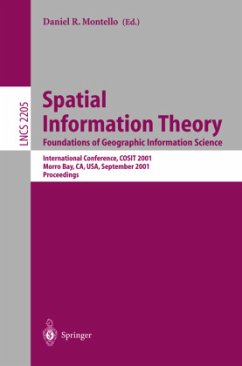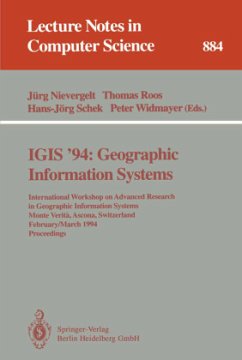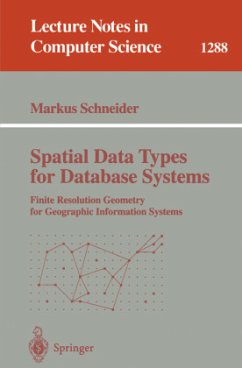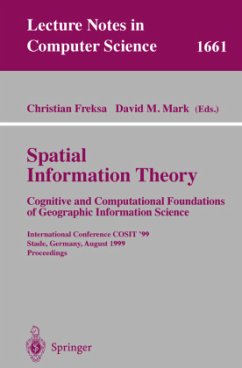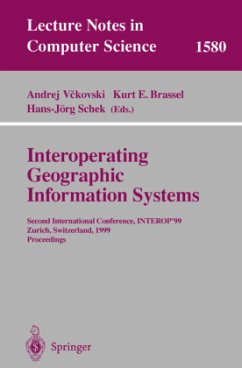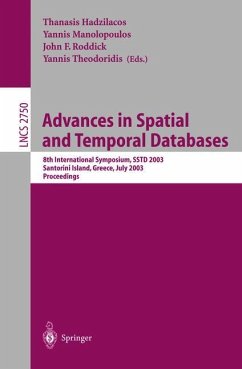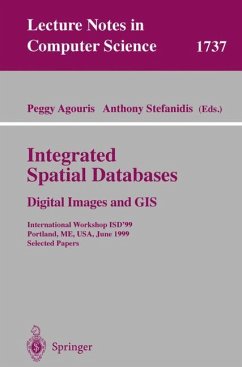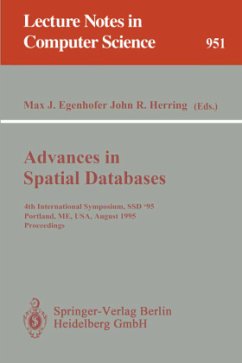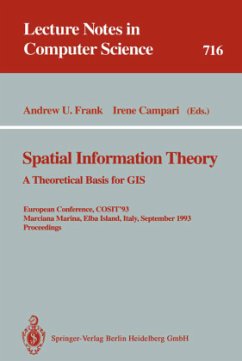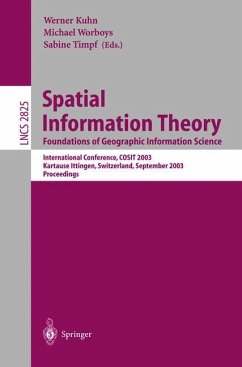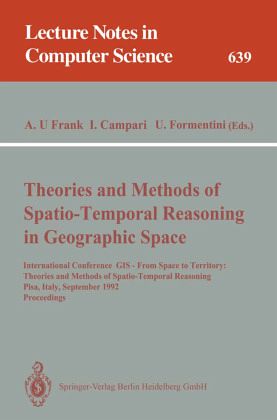
Theories and Methods of Spatio-Temporal Reasoning in Geographic Space
International Conference GIS - From Space to Territory: Theories and Methods of Spatio-Temporal Reasoning, Pisa, Italy, September 21-23, 1992. Proceedings
Mitarbeit: Frank, Andrew U.; Campari, Irene; Formentini, Ubaldo
Versandkostenfrei!
Versandfertig in 1-2 Wochen
39,99 €
inkl. MwSt.

PAYBACK Punkte
20 °P sammeln!
This volume collects the papers presented at the firstinternational conference dedicated to spatial and temporalreasoning in geographic space, entitled "GIS: from space toterritory - theories and methods of spatio-temporalreasoning".Within the National Center for Geographic Information andAnalysis (NCGIA, one of the supporters of the conference)the importance of spatial and temporal reasoning wasrecognized several years ago. Initial research found thatspatial reasoning in geographic or large-scale space isdifferent from spatial reasoning in small-scale space, asusually dealt with in robotics a...
This volume collects the papers presented at the firstinternational conference dedicated to spatial and temporalreasoning in geographic space, entitled "GIS: from space toterritory - theories and methods of spatio-temporalreasoning".Within the National Center for Geographic Information andAnalysis (NCGIA, one of the supporters of the conference)the importance of spatial and temporal reasoning wasrecognized several years ago. Initial research found thatspatial reasoning in geographic or large-scale space isdifferent from spatial reasoning in small-scale space, asusually dealt with in robotics and expertsystems. Temporalreasoning has attracted interest in the artificialintelligence community.The volume also includes two invited papers: "Do peopleunderstand spatial concepts: the case of first-orderprimtives" by R.G. Golledge, and "Temporal databases" byR.T. Snodgrass.





